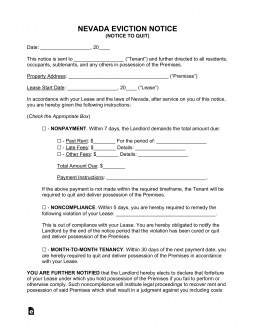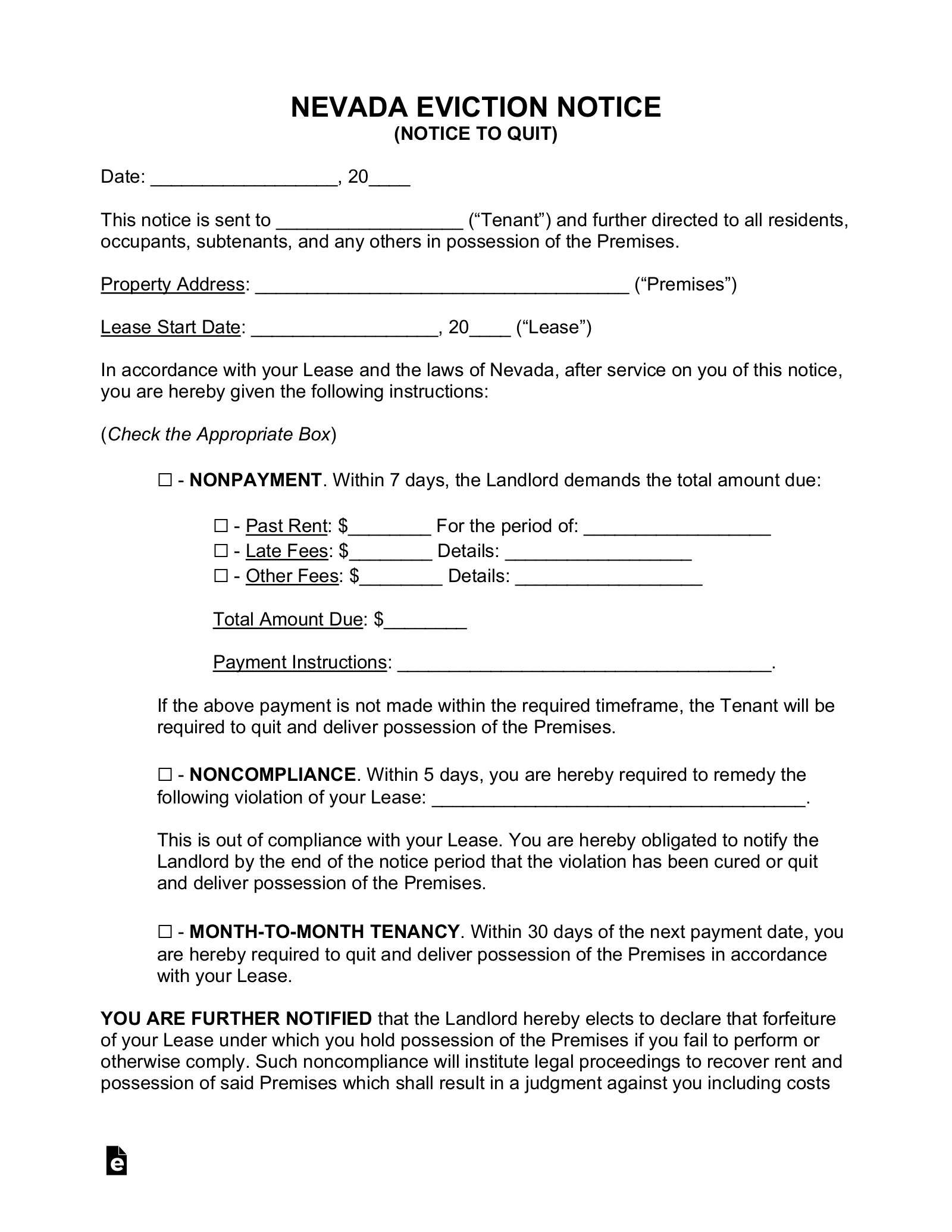Updated February 28, 2024
A Nevada eviction notice is a legal document used by landlords to notify a tenant that they have violated their lease contract. The notice will inform the tenant of how they violated their lease and what they must do to comply. If the tenant does not cure the violation within the allotted period, the landlord can file a summary eviction process lawsuit at their local justice court.
By Type (3)
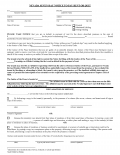 7-Day Notice to Quit (Non-Payment of Rent) – Used when a tenant owes past due rent. The landlord must allow the tenant five days to respond before beginning the eviction process. 7-Day Notice to Quit (Non-Payment of Rent) – Used when a tenant owes past due rent. The landlord must allow the tenant five days to respond before beginning the eviction process.
Download: PDF |
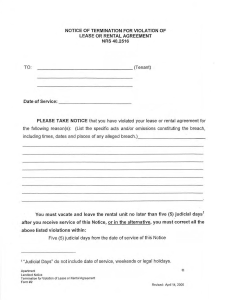 5-Day Notice to Quit (Non-Compliance) – Used when a tenant has failed to abide by the terms of the lease other than non-payment of rent. 5-Day Notice to Quit (Non-Compliance) – Used when a tenant has failed to abide by the terms of the lease other than non-payment of rent.
Download: PDF |
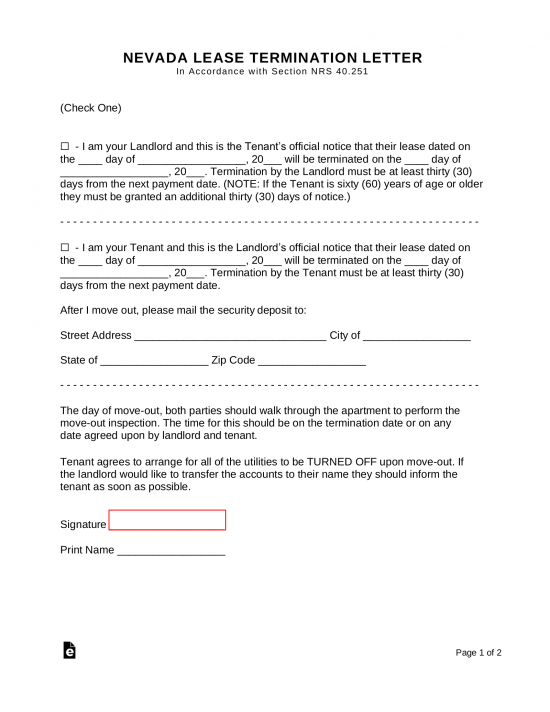 30-Day Notice to Quit (Month-to-Month Tenancy) – Used by either the landlord or tenant when they want to end a month-to-month tenancy. 30-Day Notice to Quit (Month-to-Month Tenancy) – Used by either the landlord or tenant when they want to end a month-to-month tenancy.
Download: PDF, MS Word, OpenDocument |
Table of Contents |
Prohibited Landlord Actions
Utility Shutoff – A landlord who interrupts any utility services furnished to the tenant with the intent to terminate occupancy is liable to pay for damages.[6]
Changing the Locks – A landlord who unlawfully removes the tenant from the premises or excludes the tenant by blocking or attempting to block the tenant’s entry is liable for damages up to $2,500.[7]
Court Forms
Landlord’s Declaration for Summary Eviction for Non-Payment of Rent – This form is used when a landlord wishes to file an eviction due to unpaid rent.
Landlord’s Declaration for Summary Eviction for Breach – If the eviction is for any breach of the rental contract other than non-payment of rent, this form should be used.
District Court Civil Cover Sheet – This sheet must be attached when a declaration is submitted to the district court.
Tenant’s Declaration (Non-Payment of Rent) – After being served a notice for non-payment of rent, a tenant can file their answer to the court using this form.
Tenant’s Declaration (For Breach of Lease) – After being served a notice for breach of their lease terms, a tenant may contest with this document.
How to Evict a Tenant (4 steps)
- Deliver Eviction Notice to Tenant
- Wait for Tenant’s Response
- File Complaint with Court / Attend Hearing
- Receive Court Order
1. Deliver Eviction Notice to Tenant

The first step in any eviction is to provide the tenant with the requisite notice as specified in the statutes. If you do not properly provide notice or do not wait for the specified period after the notice is given, your eviction may not be allowed to go forward. Depending on the situation, provide one of the following notices to the tenant in person, by service via the sheriff, or by certified mail:
2. Wait for Tenant’s Response
After being served with the Notice to Quit, the tenant will have five to seven days to file with the Court an Answer Form (for non-payment of rent or other lease violation).
3. File Complaint with Court / Attend Hearing
After the legal wait period, the landlord can file a Complaint (for non-payment of rent or other lease violation) in the local justice court with a Cover Sheet. You will also need to provide a copy of the lease (if there is one), a copy of the notice delivered to the tenant, and evidence that the notice was delivered.
Filing fees vary by township and county. For example:
Sources
- NRS 40.2512(1)(b)
- NRS 40.2516(1)
- NRS 40.2514(5)
- NRS 40.251(1)(a)(2)
- Chapter 40 – Actions and Proceedings in Particular Cases Concerning Property
- NRS 118B.150(1)(g)
- NRS 118A.390(1)
- Clark County Fees
- Washoe County – Reno Justice Court: Fee Schedule
- Lyon County – Canal Township Justice Court: Eviction Fees

